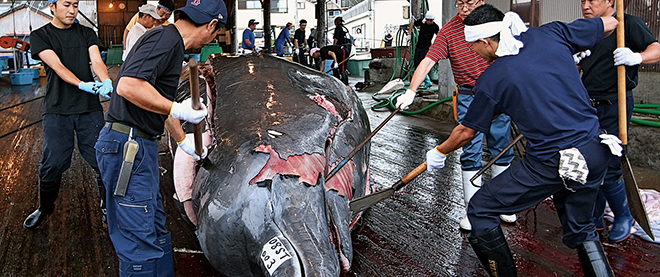New report suggests Japanese whaling industry is drowning
It is a national tradition that has boiled the blood of environmentalists for decades, but a recent report says the Japanese whaling industry is dead in the water.
Koichi Kamoshida/Getty Images
Share

It is a national tradition that has boiled the blood of environmentalists for decades, but a recent report says the Japanese whaling industry is dead in the water.
While the government has always asserted that eating whale meat was an indispensable part of Japanese culture, a report compiled by the U.S-based International Fund for Animal Welfare (IFAW) says demand for whale meat has fallen to a historic low. In 2011, whale meat consumption was just one per cent of its peak of 230,000 tonnes in 1962. The report says the whaling industry employed fewer than 1,000 people last year, and has only survived due to government subsidies, without which it would collapse. A decision to divert money from the tsunami disaster relief to prop up the whaling industry provoked an outcry.
Though the industry is fading, it may never disappear entirely. Eating whale meat can be traced back to the earliest Japanese religious texts and half the protein eaten in Japan during the Second World War was whale. But the report found 89 per cent of Japanese people had not bought whale meat in the past year. The IFAW recommends an entirely different kind of hunting called whale-watching.